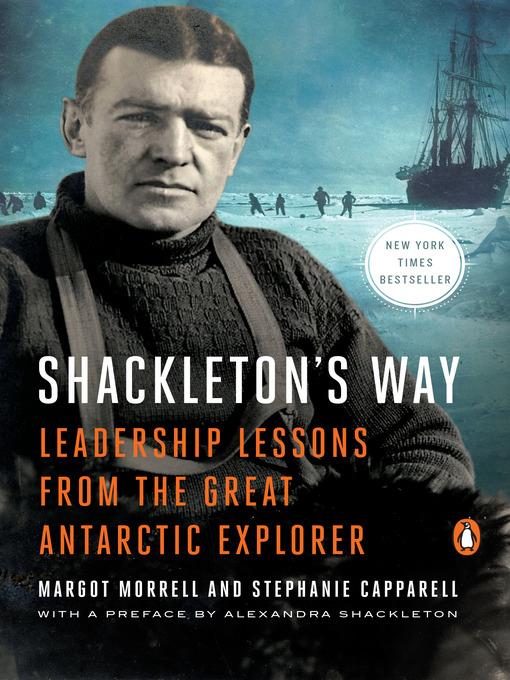
Shackleton's Way
Leadership Lessons from the Great Antarctic Explorer
- اطلاعات
- نقد و بررسی
- دیدگاه کاربران
نقد و بررسی

January 3, 2000
The heroism of British explorer Ernest ShackletonDbest known for his failed 1914 Antarctic expedition in which he saved his 27-member crew from perishing under harrowing conditions for more than two yearsDhas been chronicled in numerous narrative accounts and, most recently, became the inspiration for another book of business nostrums, Leading at the Edge (Forecasts, Apr. 3). Although they tread in that book's footsteps, Morrell (a financial expert who has studied Shackleton's life and leadership style for 15 years) and Capparell (a Wall St. Journal business editor) have produced a first-rate business primer. With the help of diaries and other first-hand accounts, they vividly describe Shackleton's expeditions and his powerful leadership style, relating them to today's business world in a streamlined presentation. The authors also include the insights of a handful of modern-day leaders, including James Cramer, who believes that his own following of Shackleton's example in hiring talented, optimistic people made the difference for him at the TheStreet.com. Morrell and Capparell's book is strongest in its emphasis on leading a team against desperate odds over an extended period of time ("Give your staff an occasional reality check to keep them on course. After a time, people will start to treat a crisis situation as business as usual and lose their focus"). (Jan.) Forecast: With a first serial in the Wall Street Journal and a five-city author tour, this solid book may come from behind to overtake its competition, Leading at the Edge.

February 15, 2001
Overwhelmed by the outbreak of World War I, the incredible story of Sir Ernest Shackleton has now resurfaced in a timely wave of Shackleton mania that reminds us of the importance of learning about heroes. In 1914, after the wreck of their vessel, the Endurance, left his crew of 27 men stranded on an ice floe in the Antarctic 1200 miles from civilization, Shackleton led them through a two-year fight for survival. Authors Morrell (financial representative, Fidelity Investments) and Capparell (an editor and writer for the Wall Street Journal) use anecdotes, diary excerpts from the seamen, and Shackleton's own memoirs to present a refreshing and timely business manual on supreme leadership disguised as an adventure story. Their story is linked to modern-day business challenges, emphasizing lessons of leadership that include working cohesively with all sorts of diverse personalities and talent, maintaining morale, creating order out of chaos, hiring good workers, managing crises with limited resources, and, most importantly, leading by example. Thankfully, the authors focus on the revealing words of those directly involved in this most amazing experience. Highly recommended for all libraries, along with works on the actual story, including Alfred Lansing's Endurance (Carroll & Graf, 2001), Caroline Alexander's The Endurance (LJ 10/15/98), and Shackleton's memoirs, South (1970). Dale Farris, Groves, TX
Copyright 2001 Library Journal, LLC Used with permission.

January 1, 2001
In 1914, British explorer Sir Ernest Shackleton led a failed attempt to cross the Antarctic continent, where his 27-man crew became stranded for 20 months. The story of their struggle recently gave birth to a number of books, documentary films, and museum exhibits. A common theme is Shackleton's perseverance and leadership skills. Dennis Perkins was the first to target business readers with " Leading at the Edge: Leadership Lessons "from the Extraordinary Saga of Shackleton's Antarctic Expedition (2000), in which he identified 10 strategies for effective leadership. Now come Morrell and Capparell, who take the same tack, but they cannot be accused of jumping on the bandwagon. In fact, they helped start it rolling. Morrell has been studying Shackleton for 15 years and uses his story in team-building workshops she conducts. Capparell profiled "Shackleton-mania" in a lengthy " Wall Street Journal" article in April 1998. Relying on crew diaries, historical accounts, and interviews with current business leaders, they capture the magnitude of Shackleton's feat while highlighting the skills and qualities a leader must possess. Documentary photographs enhance the authors' narrative.(Reprinted with permission of Booklist, copyright 2001, American Library Association.)




دیدگاه کاربران